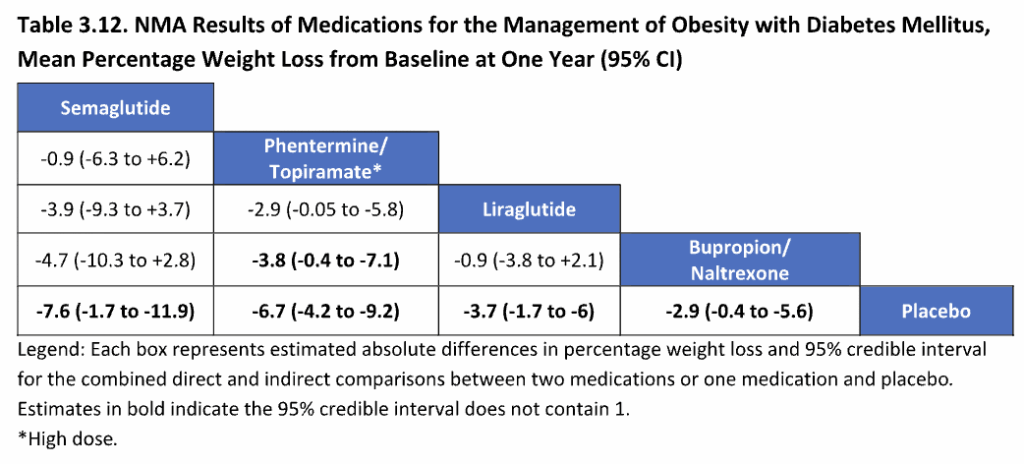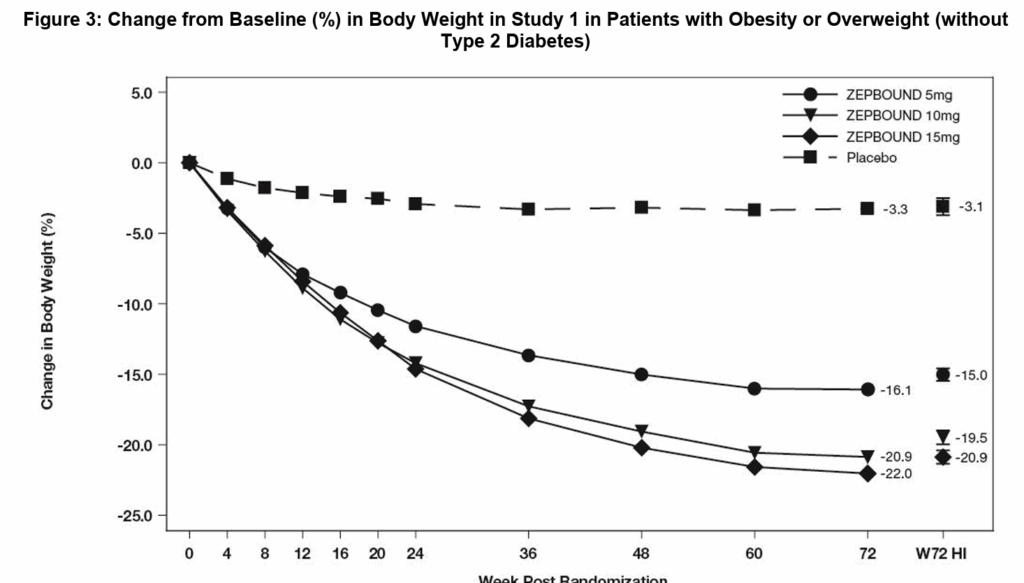Your beginner’s guide to Ozempic, Wegovy, Zepbound, and other weight loss medications from a coaching company who actually works with people using them.
Key Takeaways
- GLP-1 medications work by mimicking a hormone your body already makes, reducing cravings and helping you feel full with smaller portions
- These medications are typically prescribed for life, with about two-thirds of people regaining weight after stopping
- For best outcomes, combining medication with lifestyle changes is ideal
- Compounded versions are unsafe and unregulated, stick with FDA-approved options from legitimate pharmacies
About 10% of our Hard House client base is using some form of anti-obesity medication, with GLP-1 weight loss medications being the most popular. As these medications become more widely available to the general population, our coaching staff is fielding more questions than ever.
Since these medications produce the best results when combined with lifestyle and behavior change (our specialty), we gathered your Instagram questions and consulted with an obesity physician to bring you the most accurate, helpful information possible.
Important disclaimer: This information is based on primary sources and expert consultation but isn’t meant to replace working with your healthcare team. Always consult your physician and verify with them this information before making medication decisions.
What Are GLP-1 Medications?
GLP-1 receptor agonists are a class of medications that includes:
- Semaglutide (marketed as Ozempic and Wegovy)
- Tirzepatide (marketed as Mounjaro and Zepbound)
These medications copy a hormone your body already makes called glucagon-like peptide-1. They work by targeting parts of your brain that control hunger and eating.
The result? Fewer cravings, lower blood sugar, slower digestion, and feeling full more quickly with smaller portions.
Who Should Consider These Medications?
According to medical guidelines, candidates for weight loss medications are patients who have a history of being unable to successfully lose and maintain weight and who meet label indications. They’re typically approved for:
- Adults with Type 2 Diabetes
- Those with weight-related conditions such as hypertension
- Adults with obesity
- Zepbound has been approved for those with moderate-to-severe obstructive sleep apnea
Sometimes these medications are prescribed for off-label use. This means your doctor might prescribe these medications if you don’t meet all criteria but have other health concerns Your physician is the best person to determine if you’re a candidate based on your specific health history and goals.
The Safety Question: Do We Have Long-Term Studies?
Yes. GLP-1 medications like exenatide have been FDA approved since 2005. Ozempic was approved by the FDA for Type 2 Diabetes in 2017, and Mounjaro in 2022. Wegovy and Zepbound are approved for treatment of higher weight or obesity with weight-related conditions.
These medications undergo extensive research, and many don’t even make it to market. Scientists will undoubtedly learn more as time goes on. If you have safety concerns, your physician can discuss the specific research related to your situation.
Common Side Effects to Expect
Like any medication, GLP-1s come with potential side effects:
- Nausea
- Diarrhea
- Vomiting
- Constipation
- Abdominal pain
- Indigestion
- Injection site reactions
- Fatigue
- Allergic reactions
- Hair loss
- Heartburn
Most people find these side effects manageable and they often decrease over time as your body adjusts.
The GLP-1 Weight Loss Success Rates
When you’re considering these medications, you want to know what’s actually possible.
Wegovy’s Track Record
In clinical trials, people taking Wegovy lost an average of 15% of their body weight over 68 weeks. To put that in perspective, if you weigh 200 pounds, that’s about 30 pounds. But averages don’t tell the whole story:
- 86% of people lost at least 5% of their body weight (compared to 32% on placebo)
- About 70% achieved 10% or greater weight loss
- Half lost 15% or more of their starting weight
What’s particularly interesting is the long-term data. People who stayed on Wegovy maintained an average 10% weight loss for up to four years. The studies shows sustained results as long as you stay on the medication.

Zepbound’s Results
Zepbound showed even stronger results in trials. People lost an average of 21% of their body weight on the highest dose over 72 weeks. Here’s how the success rates break down:
- 91% lost at least 5% of their body weight (compared to 35% on placebo)
- About 85% achieved 10% or greater weight loss
- Over 70% lost 15% or more
- 40% achieved 20% or greater weight loss
In one study where participants continued treatment for 88 weeks, the total average weight loss reached 26%. That’s over a quarter of starting body weight!

When They Go Head-to-Head
A recent trial directly compared the two medications. Zepbound resulted in 47% greater relative weight loss than Wegovy, an average of 20.2% body weight loss compared to 13.7% over 72 weeks.
The Big Question: Is This a Lifetime Commitment?
Here’s what we need to be honest about: both medications require continued use to maintain weight loss. Studies show that about two-thirds of people who stop taking these medications regain the weight within a year.
This mirrors what happens with lifestyle changes alone. When you stop the intervention, the weight often returns.
Individual results vary significantly. Some people lose much more than the average, while others lose less.
These medications work best when combined with lifestyle changes. The trials included reduced-calorie diets and increased physical activity.
Listen here: Dr. Alexandra Sowa shares her honest, direct take on what people should know about coming off these medications, emphasizing the importance of realistic expectations.
At Hard House, we help clients navigate these decisions and maximize their results whether they’re using medication or not. The key is finding the right approach for your specific situation and having the support to sustain it long-term.
What If You Want to Come Off Eventually?
This is crucial information your prescribing physician needs to know upfront. You’ll want to work closely with a registered dietitian or behavior change coach to make lifestyle changes that support your eventual decrease in medication.
At Hard House, we specialize in exactly this type of support. Our registered dietitian and behavior change coaches (trained under published mindset researcher Dr. Kasey Orvidas) help clients build permanent lifestyle changes that complement their medical treatment.
While behavior change isn’t a replacement for medication, it’s a great adjunct in case you lose access to your medication for reasons outside of your control.
What About Alternative Approaches?
Micro-dosing: Not What You Think
While micro-dosing sounds appealing, research tells a different story. Dr. Nadolsky discusses how micro-doses in studies were not better than placebo groups. While physicians may personalize dosing based on individual response and side-effects, optimal dosing for maximum benefit with minimal side effects has been identified through extensive research on these medications.
As they say, if micro-dosing worked, that’d be the standard.
Compounded Versions: A Serious Warning
There’s passionate consensus among obesity physicians: compounded medications are harmful. Cardiologist Dr. Danielle Belardo explains why you should avoid them.
Compounded versions are:
- Unsafe and unregulated (not FDA approved)
- May contain impurities
- May not contain the doses they claim
- Subject to FDA legal action (the FDA has ordered compounding agencies to stop making these versions)
Practical Tips for Success on GLP-1s
Managing Appetite Suppression
If using these medications zap your appetite completely, try these strategies:
- Eat small but frequent meals throughout the day
- Eat by the clock and stop at fullness rather than waiting for hunger cues
- Use homemade shakes blended with whole foods and protein powder or Greek yogurt
- Add fiber supplements like psyllium husk to support digestive health
- Talk with your physician about dosing if appetite suppression is too high
Remember, having an appetite and feeling hunger is normal and healthy! Consistent full suppression of appetite should signal it’s time to doctor to your doctor.
For Active Individuals and Athletes
Research is limited on GLP-1 use in athletic populations, but here’s what we know:
If you want to run a half-marathon or pursue other athletic goals, work closely with a dietitian and your physician. Your dosage should help you maintain your weight while ensuring you can eat enough calories to support training. Being in a calorie deficit while training for endurance events isn’t recommended.
Preventing Muscle Loss
Higher rates of muscle loss occur when people don’t:
- Resistance train regularly
- Eat adequate protein (1.2g per KG of body weight at least)
This happens whether you’re on medication or not when losing weight. It does not appear to happen faster because of the medications.
If you’re in the market for a quality resistant training program, we recommend our friends at The Lyss Method, owned by exercise scientist Dr. Alyssa Olenick.
The Current State: Are Medications Still in Shortage?
Good news: the shortage has been resolved. The FDA confirms they can meet current and future demand for both semaglutide and tirzepatide.
Your Next Steps
If you’re considering GLP-1 medications or already using them:
- Talk with your healthcare team about whether these medications are right for you
- Avoid compounded versions and stick with FDA-approved options
- Focus on lifestyle changes alongside medication for best results
- Consider professional support for behavior change and nutrition guidance
Ready to maximize your results with professional coaching support? At Hard House, we specialize in helping clients combine medication with sustainable lifestyle changes. Our team includes a registered dietitian and behavior change specialists who understand the unique challenges of this journey.
Apply here to work with a Hard House coach and see if we’re the right fit for your goals.
Remember: these medications are tools, not magic solutions. Combined with the right support and lifestyle changes, they can be part of a successful, sustainable approach to health!
